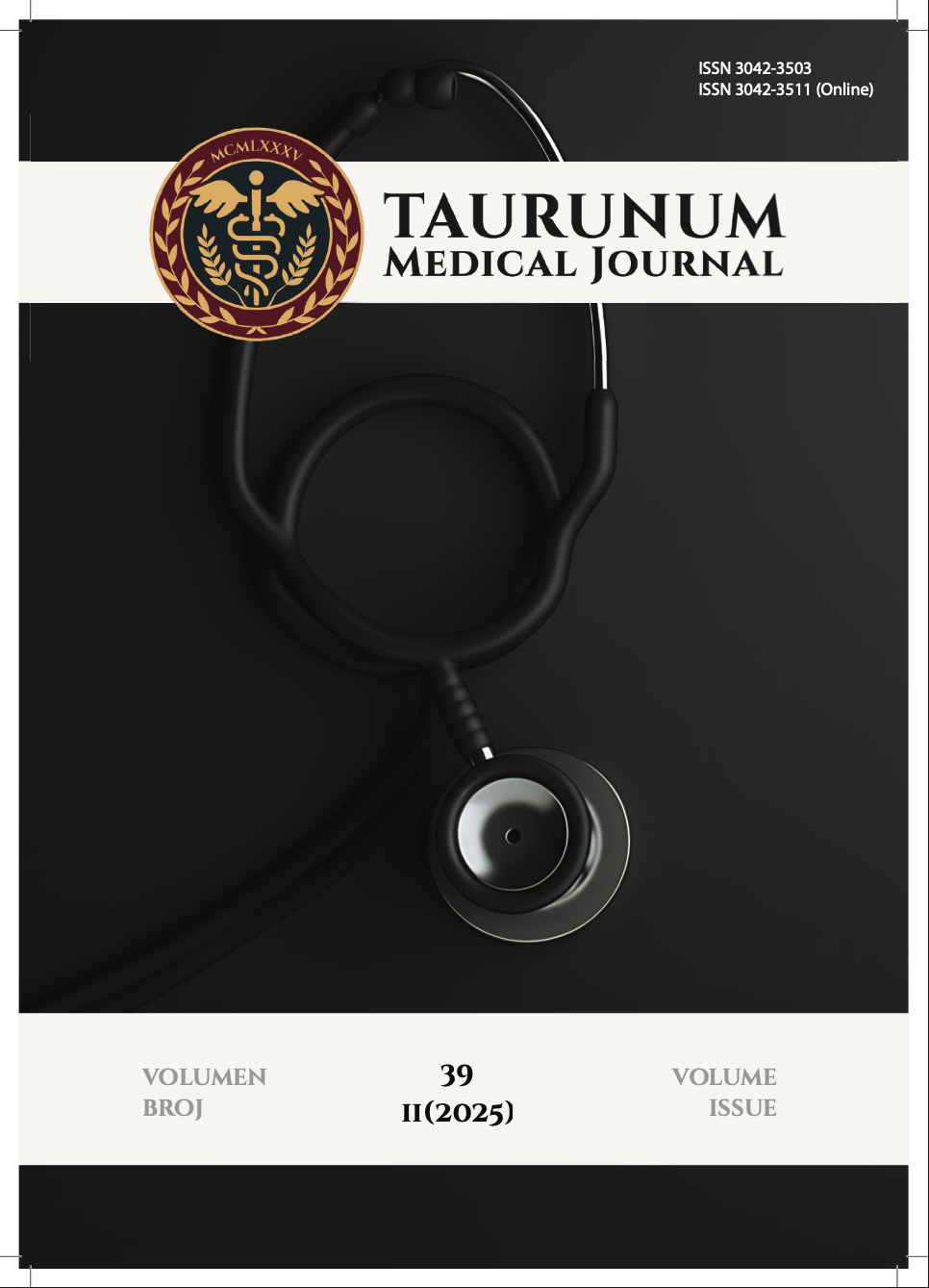Current issue

Volume 39, Issue 2, 2025
Online ISSN: 3042-3511
ISSN: 3042-3503
Volume 39 , Issue 2, (2025)
Published: 12.11.2025.
Open Access
All issues
Contents
01.04.2018.
Poster session
Ectopic pancreatic tissue in a gallbladder: case report
Aim: We present an interesting case of pancreatic ectopic tissue in the gallbladder. Introduction: Ectopic or heterotopic pancreas is defined as the presence of pancreatic tissue outside the boundaries of the pancreas that show no anatomical or vascular connection with the main body of the pancreas. Case report: We present a rare case of ectopic pancreas found in a 38 year-old man s gallbladder. Male patient was admitted to the Surgical Department Clinical Hospital Center Zvezdara, as scheduled for an elective laparoscopic cholecystectomy. One year prior to the surgery he had had abdominal ultrasonography done during a routine hospital check up. Ultrasonographic examination of the whole abdomen had showed no abnormality, except for cholelithiasis. Laparoscopic cholecystectomy was done. On gross examination, the gallbladder measured 9 cm in length and 3.5 cm in circumference, with a wall thickness ranging from 0.2 to 0.4 cm. On cutting open, one yellowish round stone, measuring 0.6 cm in diameter, was noted in the fundus. The mucosa was velvety flattened. A nodule of 1,5 cm in diameter was seen in the neck region, which on microscopic examination, showed a well circumscribed rest of heterotopic pancreatic tissue, composed of lobules of exocrine pancreatic acini and an occasional duct. Islets of Langerhans were also present. Conclusion: Ectopic pancreatic tissue in a gallbladder is a very rare condition which is usually diagnosed incidentally. Up to the presents, only about 30 cases have been reported. The clinical significance of the ectopic pancreas remains unclear and it requires further exploration.
Marija Milic Perovic, Aleksandra Paunovic Markovic, Natasa Djurdjevic, Marija Cubrilo, Jelena Kuzmanovic, Jovan Juloski, Lidija Vuckovic Hardi
01.04.2018.
Poster session
Metastasis of gastric signet ring cell carcinoma to the ureter
Aim: We present an interesting case of unexpected metastatic deposit “signet ring cell” of the gastric cancer in the ureter. Introduction: Ureteral obstruction caused by gastric cancer may occur by any of the following three mechanisms: direct extension from the primary site, peritoneal deposit or lymph node metastasis. Material and Methods: We report the case of a patient with ureteral metastasis as the first and sole manifestation of gastric cancer dissemination two years after he was first diagnosed with gastric cancer. Results: A 52-year old male patient was admitted to the Department of Urology, Clinical Hospital Centre Zvezdara in Belgrade, with a 5-day history of right colic flank pain and high temperature. He had a partial gastrectomy for gastric cancer two years ago and received 8 cycles of chemotherapy. Routine blood test results were normal except elevated creatinine and C-reactive protein levels. An abdominal ultrasound examination and computed tomography revealed grade 3 hydronephrosis and hydroureter. Cystoscopy indicated a tumor measuring 2 cm in size which involved left ureteral orifice. A left nephroureterectomy and transurethral resection of bladder tumor were performed. Histopathological examination of surgical POSTER SESIJA 65 MATERIA MEDICA • Vol. 34 • Issue 1, suplement 1 • april 2018. specimen revealed signet ring cell carcinoma infiltrating lamina propria and tunica muscularis of the left lower ureter. Histopathological examination of the bladder specimen revealed signet ring cell carcinoma identical to those of the ureteral tumor. Conclusion: Ureteral metastases from gastric cancer are extremely rare. Shimoyama reviewed 27 cases of the true ureteral metastasis from gastric cancer. The prognosis is generally poor and the survival for more than 2 years has not been reported in literature.
Marija Milic Perovic, Aleksandra Paunovic Markovic, Nata a Djurdjevic, Marija Cubrilo, Jelena Kuzmanovic, Jovan Juloski, Lidija Vuckovic Hardi



